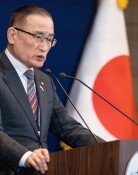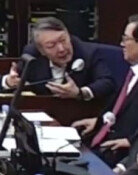Medical residents and students not returning
Medical residents and students not returning
Posted May. 23, 2024 07:52,
Updated May. 23, 2024 11:34

Although the deadline for the return of 13,000 medical residents on strike in protest of the government’s decision to expand the medical school admissions quota expired, only a small number of residents have returned. Residents who left the hospital on February 20 will lose their eligibility to take next year's specialist exam if they do not return by May 20. The government has left open the possibility of extending the deadline. Still, many residents determined not to return are raising concerns about disruptions to specialist training, which was expected to reach 2,900 next year. Even medical students who have left school show no signs of returning, raising the possibility of students repeating a grade.
When the Seoul High Court rejected or dismissed the medical community's application to stop the government’s actions, there were public expectations that the medical void that had continued for more than three months would end. The government vowed to address the situation as soon as possible to avoid further confusion, but the medical community has re-appealed. During the court hearing, it was revealed that there was a lack of scientific basis for the increase in admission quota by 2,000 students. Moreover, the government did not keep proper meeting minutes during internal discussions to increase the quota. Despite winning the case, the government cannot convince the medical community of its policy direction, failing to gain momentum to push forward with the policy.
If residents and medical students do not return, the impact may not seem significant individually, having to delay a year of studies to become a specialist. However, the medical community could suffer irreparable fatal damage. Some large hospitals highly dependent on medical residents are considering suspending employee salaries starting next month. If specialists are no longer trained, this will paralyze essential medical fields that are already suffering from fewer applicants. This will also impact the supply and demand of public health doctors serving in medically vulnerable areas. If the medical school admissions quota increases by 1,509 students as planned, medical schools will be in complete chaos from next year with the flooding of new students and repeat students.
The government continues to push forward with its plan despite the catastrophe that lies ahead. However, the medical community refusing to come to the table and persistently calling for the government to reconsider its policy is equally irresponsible. Meanwhile, the political community continues to sit on its hands, remaining silent in the face of a medical crisis. It is lamentable how the government and society fail to balance differences despite social consensus on the need to increase medical school admissions and carry out medical reform. The situation must be addressed within 30 days before the college admissions plan is determined.







